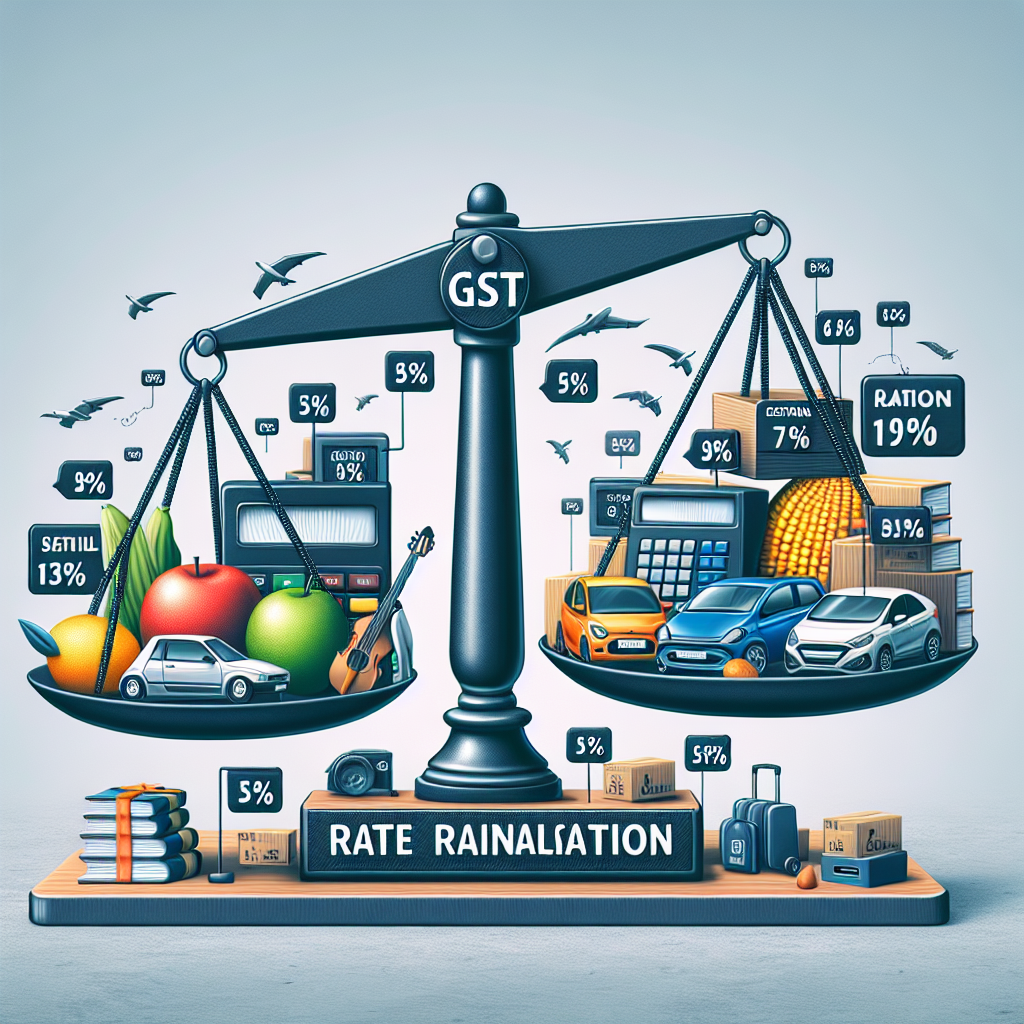GST Rate Rationalisation Fuels India's Economic Momentum
The GST rate rationalisation in India is projected to boost economic growth by enhancing consumption. With streamlined tax slabs and reductions on essential items, industry leaders anticipate a positive impact on consumption across sectors. This reform is expected to harmonize with global economic strategies and bolster India's market presence.

- Country:
- India
The recent GST rate rationalisation in India is forecasted to initiate a new cycle of economic growth, primarily driven by increased consumption. This move is expected to offer a significant buffer against global tariff challenges, particularly those posed by U.S. policies, as per industry leaders.
With the GST Council's approval, effective from September 22, changes to the indirect tax system have reduced slabs to 5% and 18%. Industry champions, like Ashok P Hinduja of the Hinduja Group, foresee these cuts boosting grassroots demand and stabilising the macroeconomic environment. Anand Mahindra, chairman of the Mahindra Group, underscored the need for continued reforms to further stimulate the economy.
Various industry figures, including FICCI's Harsha Vardhan Agarwal and CII's R Dinesh, highlight the benefits from reduced classifications disputes and improved compliance, with expanded access for consumers and industries. The upcoming festive season is expected to see a significant uptick in consumption, further establishing the GST as a cornerstone of India's tax reform strategy.
(With inputs from agencies.)
ALSO READ
Greek Prime Minister Unveils Tax Cuts Ahead of Election
Greece's Bold Tax Overhaul: Aiming to Rejuvenate Household Incomes
BJP MPs Workshop Set to Applaud Modi for GST Reforms
Centre’s Landmark GST Reforms Slash Rates for Cooperatives, Farmers and Rural Enterprises
BJP's Nationwide GST Outreach: Simplifying Tax Reforms










